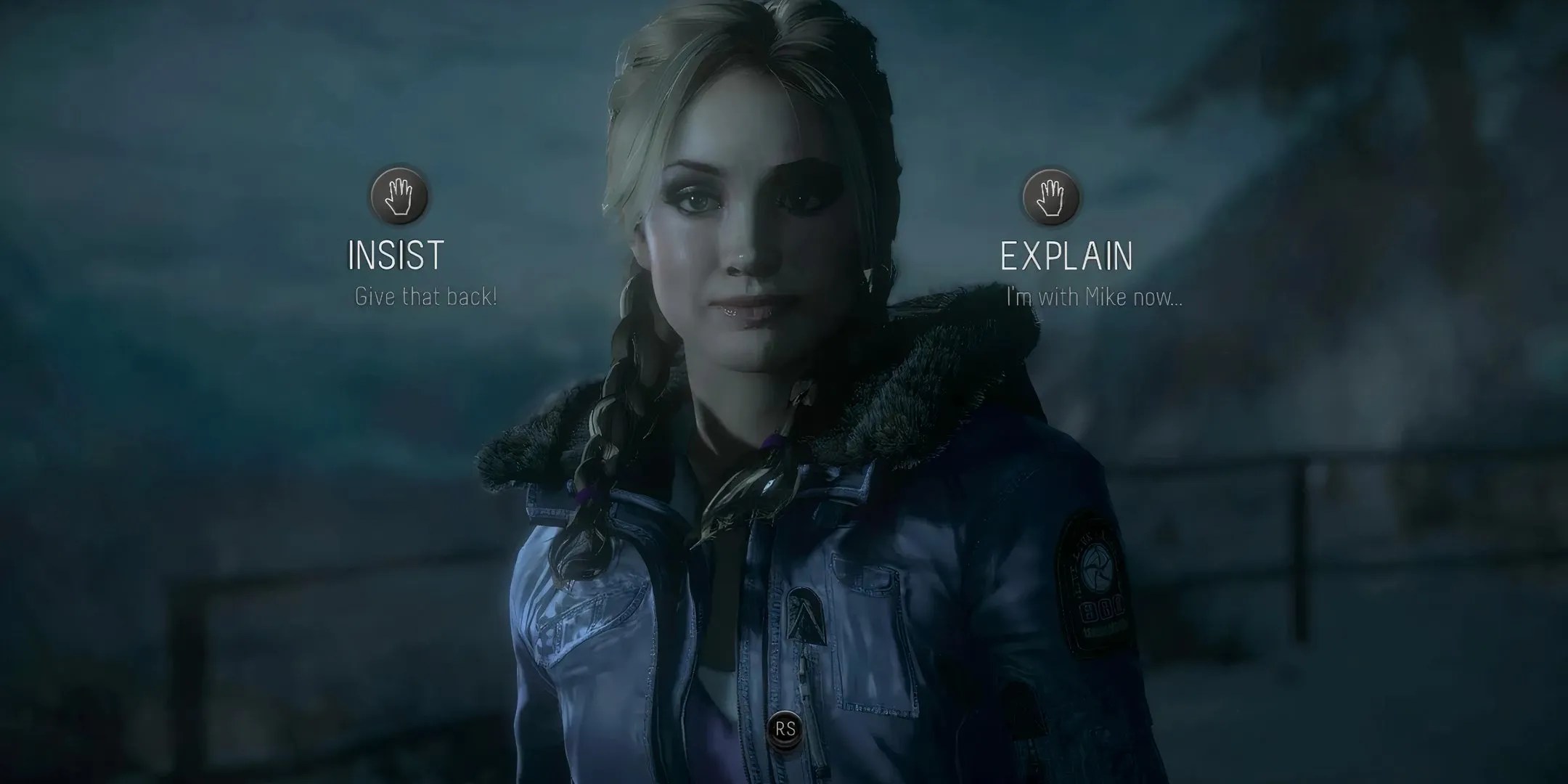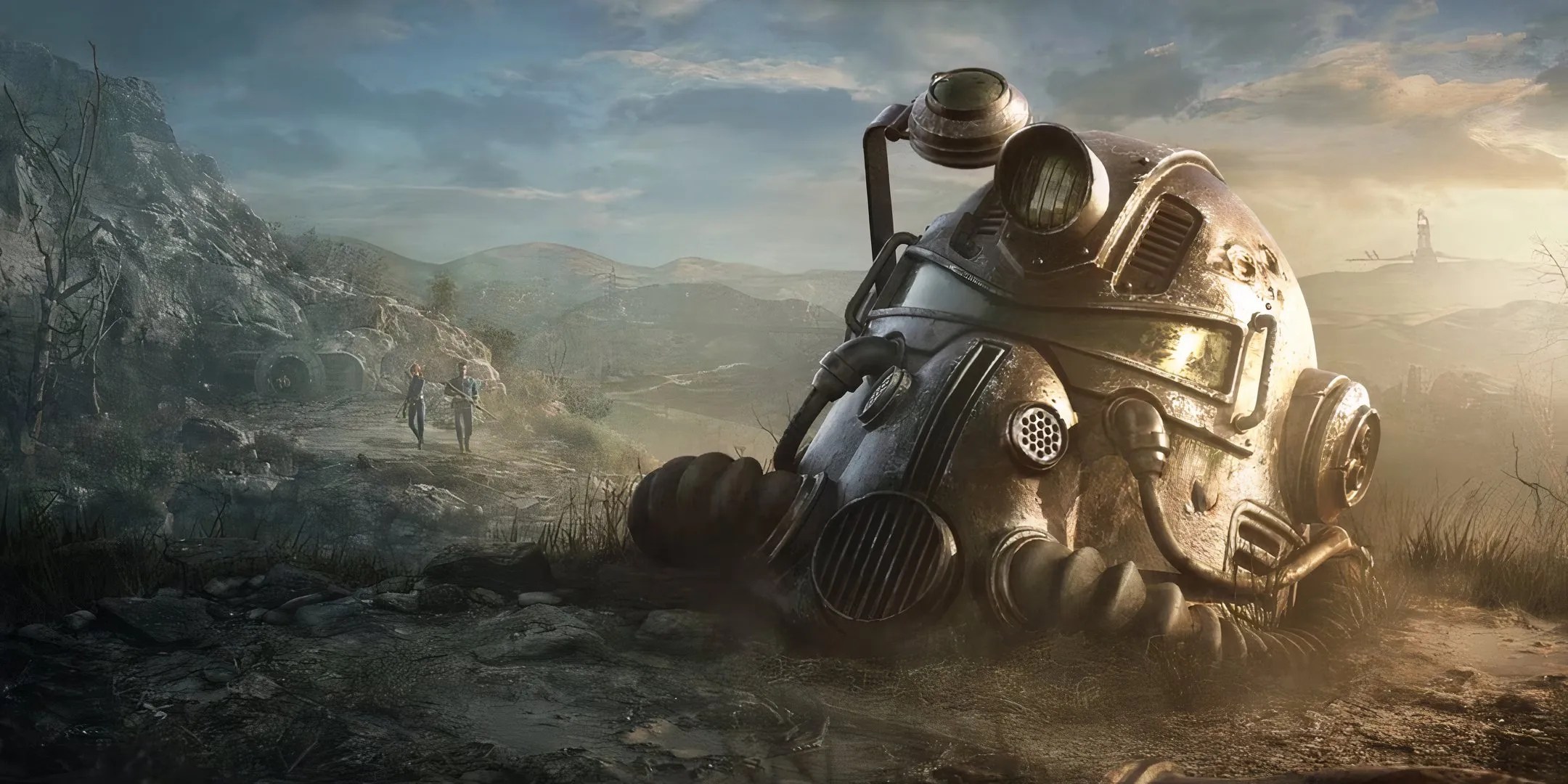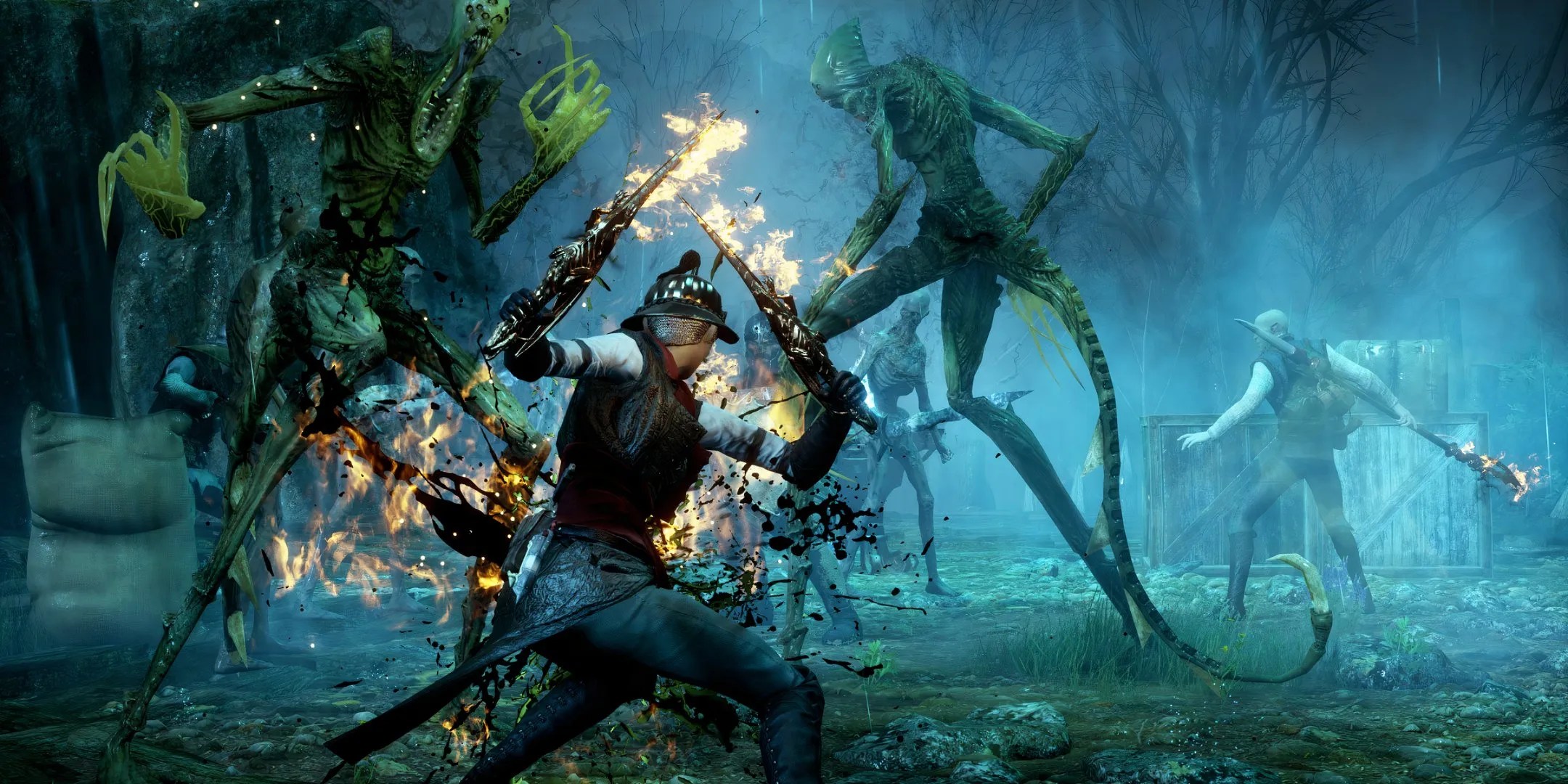Ambition and the limits of technology often clash when it comes to executingideas in game development. Many grand ideas, gameplay elements, and narrative beats that never see the light of day end up on the cutting room floor. Not because of a lack of trying, but sometimes, what you want to do just isn’t possible.
Take making choices in games. For years, we’ve wanted the ability to choose how games go. For a while, it felt like we got what we wanted, with games like The Walking Dead that left the knee-jerk decisions in our hands. However, at the end of the day, many of these games pulled the wool over our eyes, showing us that our choices were merely illusions.

They might be older games, but there are still many story spoilers below.
Until Dawn draws you in by presentingthe Butterfly Effect, the theory that a minuscule change could have damning repercussions later in the timeline. On paper, it sounds good; however, right off the bat, you’re already running into issues where your choice doesn’t matter, and it takes the tension right out of the moment.

What choice am I talking about? Well, as we’re presented with the choice between saving Beth or Hannah in the beginning, it doesn’t matter. Sure, you could argue that it’s set up to build tension, but many of the other character choices feel the same way in the heat of the moment. By the end, there are only two distinct endings: you live, and the Wendigos are destroyed, or you die. Who survives, outside of Josh, doesn’t matter, as his fate is sealed either way.
When it comes toopen-world, sandbox games, they are designed (typically) for you to jump in and create a mix of enjoying the story as intended and making your adventure up as you explore the map and discover its secrets.

Fallout 4 starts that way at first. You’re eventually funneled into choosing a faction, then you’re funneled again into several other choices that lead you to do the same thing, no matter what faction you choose: destroy the other factions so yours can come out on top. Sure, I’m glossing over some of the finer nuances, but really, it boils down to which faction you look best in.
If you’ve played any action RPG from the 2010s, then you’re more than familiarwith the morality systemthat overran many games back then. And, despite hundreds of hours of playthroughs and reloading saves, the choices amounted to little more than a personality change at best.

The infamous series at least tried to utilize the system in the world better by changing your skills and how NPCs interacted with Cole. However, by the third game, even the difference in skill was boiled down to playing offensively with evil Karma or defensively with good Karma. It would have been nice to have a little more nuance the third time around.
It’s not that Life is Strange needed more than two endings; I think it’s fine that there would be reality-altering consequences for Max, as she is manipulating physics that could, and do, rip time and space apart. Having the town’s survival come at the cost of Chloe is a fantastic moral choice.

The problem is that it’s the only one that carries true narrative weight. While the game explores the alternate realities that are created when Max uses her powers, they’re only glimpses at best; to add emotional weight, but after the scene is over, you’re back to using your powers as if you didn’t see alternate realities crumbling around you.
Do you remember the older Dragon Age Games? Depending on how you ended up, you could end the game in several ways. You could sacrifice yourself or another Grey Warden and deliver the killing blow, or team up with Morrigan and come up with an alternate way that sacrifices no one, but with possible, larger implications later.

It was a long, hard fight, and while in Dragon Age: Inquisition, the stakes are much higher and the world much bigger. However, every ‘major’ choice you make, such as whether you aid the Templars or Mages early in the game, just feels like flavoring for the confrontation with Corypheus. You don’t have any agency in how you defeat him.
I’m just going to ask upfront: if the result of the end is nuclear war, does it matter what you do? Far Cry 5 put on the disguise of choice, but it didn’t wear it very well. Not just in the story, when both your endings end in a nuclear warhead going off, and you’re in trouble, but the pacing doesn’t fare much better.

You’re encouraged to go after each of the Seed family members who are located in different areas on the map, but before you can go straight to them, the map is locked off, and you have to recapture regions before you can fight a Seed Sibling. Couple that with being kidnapped randomly at certain points solely to slow your progress down, and the game becomes a test of patience.
The Walking Dead is probably one of the first games you think of when the topic of choice-based games and the long-reaching consequences of them comes up. However, if you look closer, are the results of your choices as long-reaching as they want you to believe? Or are you just delaying the inevitable?

For example, take a look at when you have the chance to save Nick or Pete in Season 2. No matter which you choose, they both die, though at widely different points in the season. Of course, it plays into the themes of survival and futility, but once the shock factor wears off, it can become a little repetitive.
There is only one real choice that you make in this game, despite all the micro choices you’re presented with as you build up your allies to take down your brother Logan. His rule has taken a tyrannical and murderous turn for the worse from his good (or not-so-good, depending on your choices from the previous game) decisions from Fable 2.

Once you bring him down and assume your place on the throne, however, the game goes from you leading a revolution to raising funds and micromanaging a kingdom. That is essentially it. I mean, there are fights and interactions, sure, but they’re only there to add flavor to your main fundraising task and nothing more. Fable 3 was a real step back in the decision-making front compared to the first two games.
The focus on the lack of narrative choice has been evident throughout this list, but now, we’re going to flip it on its head and focus on a game that not only gives you mostly the freedom to choose how to tackle choices narratively, at least until the end, but also in how you handle combat. At least until it came to boss encounters.

What do I mean? Let’s say you were the type of player who preferred to stick to the shadows and use subterfuge to handle combat. Well, you were out of luck when it came to boss fights, because you had to face them head-on -even if you were wholly unprepared (and unequipped in the majority of these fights) and non-lethal.
Okay, this one stung. As Commander Shepard, you spent literal years, some of them dead, but that’s neither here nor there, saving some folks and becoming the worst nightmare for others. An investment of not only time, but also emotion, as you became close with the crew of both iterations of the Normandy.
Yet, when it came time to reach the climax of the story and see where the battle between the Reapers and Shepard ended up, it was simplified to three colors to choose from that represent literal universe-shaping choices. None of them felt satisfying, and two of them required us to say goodbye to the hero we’ve grown attached to, not in an explosive heroic way, but in an RGB whimper.